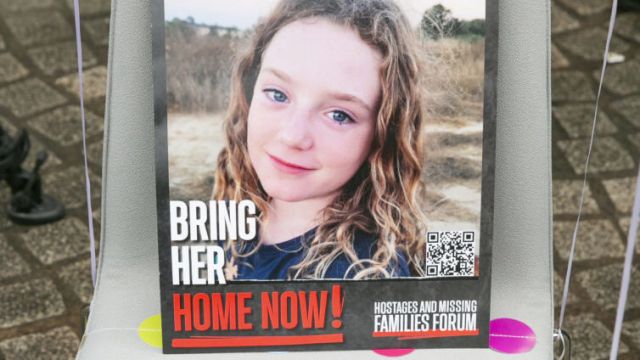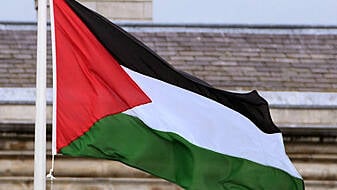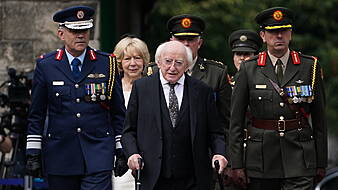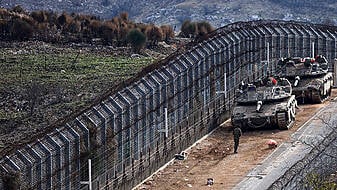The release of hostages under a temporary truce between Israel and Palestinian Hamas militants will not happen before Friday, Israel's national security adviser and the US said, dashing hopes of relatives that some would be freed on Thursday.
The family of Israeli-Irish national Emily Hand were waiting anxiously on Wednesday night along with relatives of other children held hostage in Gaza to find out if she will be released.
Emily, who turned nine last week, was seized from kibbutz Be’eri on October 7th when 3,000 gunmen from Gaza crossed the border into southern Israel, killing 1,200 people, according to Israeli authorities, and taking almost 240 into captivity.
Israel and Hamas agreed early on Wednesday to a ceasefire in Gaza for at least four days, to let in humanitarian aid and free at least 50 hostages held by militants in the enclave in exchange for at least 150 Palestinians jailed in Israel.
The starting time of the truce and release of hostages captured by Hamas during its October 7th attack on Israel has yet to be officially announced. An Egyptian security source said mediators had sought a start time of 10am (8am Irish time) on Thursday.
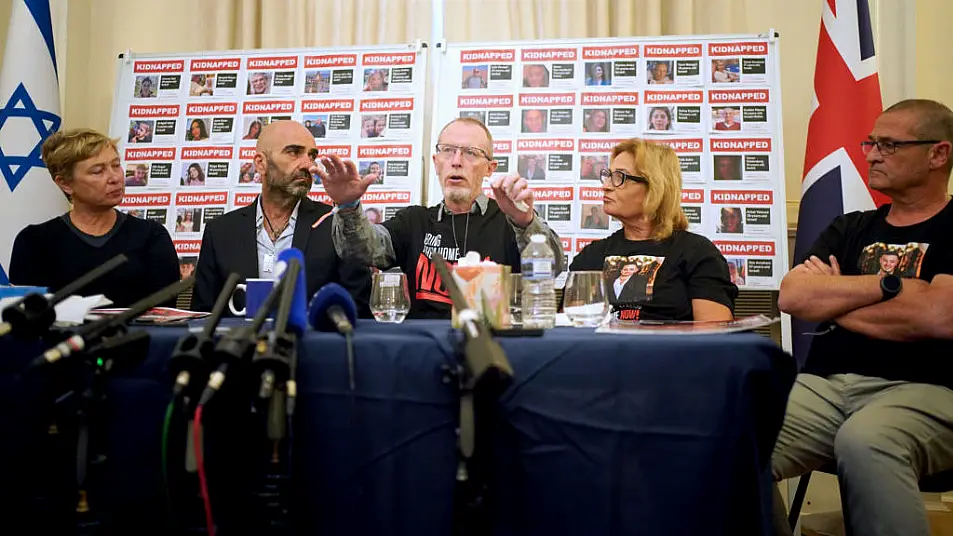
Taoiseach Leo Varadkar said he was hopeful that Emily will be released shortly and that if there can be a ceasefire for four days “maybe there can be a ceasefire for a longer period.”
Speaking on Newstalk radio on Thursday morning, Mr Varadkar said the ceasefire would provide a breathing space for humanitarian aid.
The family of Emily were in his thoughts, he said. “I can't imagine what a traumatic experience that is being held captive in a tunnel away from your family.”
There was no military solution to the Israel-Palestine issue. “There's no way that one side can defeat the other militarily, notwithstanding Israel's extraordinary military power.”
Mr Varadkar added that he thought the European Union's policy towards Israel-Palestine had been “very passive” when it comes to Israel. “It has been partly because Europe is divided on the question of Israel-Palestine. It's been a passive approach, and I don't think that's sustainable.”
The Taoiseach said calls for unilateral action against Israel were a bad idea and any action needed to be multilateral.
Providing an update on the status of Emily, a Department of Foreign Affairs spokeswoman said: “The Department of Foreign Affairs welcomes the announced agreement between Israel and Hamas for a truce and the release of some of the hostages held in Gaza.
“Our focus in particular is on the case of nine-year old Irish citizen Emily Hand.
“We have worked consistently for her release over recent weeks, including through extensive contacts with regional partners. There is no official confirmation at this time of those scheduled to be released under this agreement.
“The department welcomes the truce agreed as part of the hostage deal. A break in hostilities is essential to allow for significant increased humanitarian access. Gaza’s civilian population urgently need fuel, food, water, and medical supplies, on a sustained basis and at scale.”

Speaking on Thursday morning, Qatar's foreign ministry spokesperson Majid bin Mohammed Al Ansari said an announcement on the beginning of the truce could come in the next few hours. Qatar has been mediating in the negotiations on the truce.
"The negotiations on the release of our hostages are advancing and continuing constantly," Israeli national security adviser Tzachi Hanegbi said in a statement released by the prime minister's office.
"The start of the release will take place according to the original agreement between the sides, and not before Friday," it said.
White House spokesperson Adrienne Watson said final logistical details for the release were being worked out. "That is on track and we are hopeful that implementation will begin on Friday morning," Watson said.
But there was no let-up in the fighting early on Thursday, reports said.
Palestinian media said Israeli aircraft and artillery struck Gaza's southern city of Khan Younis in at least two waves and 15 people were killed. Attacks were also reported in several other parts of Gaza, including the Jabalia and Nuseirat camps.
There was no immediate comment from Israel and Reuters was unable to independently verify the reports.
In Israel, sirens warning of incoming rocket fire from Gaza blared in communities near the border with the enclave, the military said. There were no reports of damage or injuries.
Israel's public broadcaster Kan, citing an unidentified Israeli official, reported there was a 24-hour delay in the truce because the agreement was not signed by Hamas and mediator Qatar. The official said they were optimistic the agreement would be carried out when it was signed.
"No one said there would be a release tomorrow except the media ... We had to make it clear that no release is planned before Friday, because of the uncertainty that hostages' families are facing," Kan quoted a source in Israeli prime minister Benjamin Netanyahu's office as saying.
Israeli media, citing anonymous officials, reported the pause in fighting with Hamas also would not start before Friday. Israel's Ynet news website reported that Israel had not yet received the names of the hostages slated for release by Hamas.
Since the Hamas attack on southern Israel that surprised the government and shocked Israelis, five hostages have been recovered alive. Israel says 1,200 people were killed, mostly civilians and about 240 hostages of different nationalities taken hostage by Islamist gunmen.
In retaliation, Israel has subjected Hamas-ruled Gaza to a siege and relentless bombardment. More than 14,000 Gazans have been killed, around 40 per cent of them children, according to medical officials in the territory.
'Need to know they are alive'
Netanyahu made no mention of a potential delay in implementation of the agreement during a press conference late on Wednesday. Hanegbi's statement was released about an hour after the press conference.
"We need to know they are alive, if they're okay. It's the minimum," said Gilad Korngold, who said he drew just a measure of comfort from the deal between Israel and Hamas and was among those who was still awaiting word of relatives. Seven of his family members, including his 3-year-old granddaughter, were taken hostage.
"I want everybody back. But I think – and it's a very tough decision – but I think the children and women must be [first]. They are most fragile...they need to get out."
The US also hoped that aid would begin reaching Gaza in large volumes within the next few days, White House national security spokesperson John Kirby said.
The 50 hostages would be released over four days at a rate of at least 10 daily, Netanyahu's office said. The truce could be extended day by day so long as an additional 10 hostages were freed each day, it said.
Israel's justice ministry published a list of 300 names of Palestinian prisoners who could be freed.
Hamas said the initial 50 hostages would be released in exchange for 150 Palestinian women and children imprisoned in Israel. Hundreds of trucks of humanitarian, medical and fuel supplies would enter Gaza, while Israel would halt all air sorties over southern Gaza and maintain a daily six-hour daytime no-fly window in the north, Hamas said.
The truce agreement, the first in a nearly seven-week-long war, was reached after mediation by Qatar and seen by governments around the world as potentially easing the suffering of civilians in the Gaza Strip.
Gaza is the "most dangerous place in the world to be a child," Catherine Russell, head of the United Nations children's agency Unicef, told the UN Security Council on Wednesday. More than 5,300 Palestinian children had reportedly been killed since October 7th, Russell said. – Additional reporting: Vivienne Clarke
